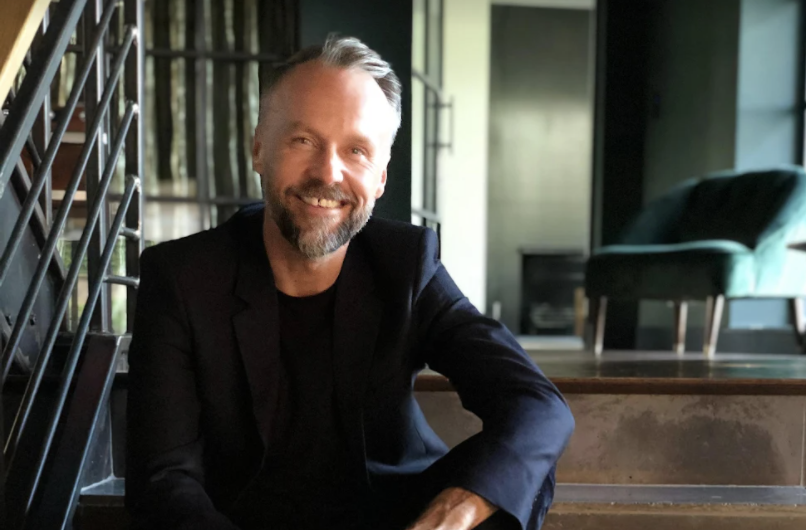I founded LovedBy three years ago with the goal of improving the lives of adolescents with chronic conditions and their families. We bring together behavioural specialists, neurologists, consultants and coders to make tools that can capture patient behaviour, analyse it, and deliver genuine behaviour change. With our Nudg platform, which is designed specifically for Gen Z, we use technology and data thoughtfully, to really get to the root of these young peoples’ behaviour and sentiment, how it impacts their condition, and therefore how best to manage that for a better lifestyle going forward.
That kind of innovation requires a lot of research and development, so we fund our work in this area with a unique business model. We apply our expertise in product and service design and behaviour change to supplying businesses with technology and consultancy, which generates the revenue we need to help Nudg reach its full potential. To date, we’ve invested £450,000 of our profit into the Nudg platform, behavioural framework and content, working with the likes of the NHS, Lloyds Bank and AXA Health and Cambridge Assessment to deliver game-changing insight on better ways of engaging their audiences.

How did you come up with the idea for LovedBy?
I was on a career break after 30 years spent in technology design when my son was unexpectedly diagnosed with type-1 diabetes. Gradually I discovered how challenging it is to manage that kind of lifestyle change – and even more so when the person concerned belongs to one of the trickiest groups around: Gen Z. This specific crop is one of the most diverse demographics ever, stretching from the age of 12 right up to 24 or 25, and yet the healthcare system treats them with a one-size-fits-all approach. They all think differently, they all engage differently and there is massive neurodiversity among them, so to deliver effective care, you need to bring in personalisation.
That’s the premise behind LovedBy. We harness the power of technology to get to the crux of who and what we’re dealing with, and how to get them to listen to us. The key is that this isn’t just cold, hard AI using automation for automation’s sake – we pair tech, in context, with emotion to truly understand what this demographic needs. And crucially, we get them involved in the design process to make sure it’s right for them. We called ourselves LovedBy because people need to be in a caring environment where they feel understood and loved – and that’s what we try to create.
More from Interviews
- Meet Roman Eloshvili, Founder of ComplyControl
- Inside Mobile Payments with Bojoko’s Ville Saari
- Meet Steve Haskew, Group Director of Sustainability and Growth At Circular Computing
- A Chat with Hakob Astabatsyan, CEO and Co-Founder of Synthflow AI
- Meet Ernesto Suarez, CEO at Travel Insurance Provider: Gigasure
- Under Pressure and On the Clock: Gurhan Kiziloz’s Nexus International to Hit $1.45B Revenue in 2025
- Daisy Ip of InvestHK: Why Hong Kong Continues To Grow In Popularity Amongst UK Fintech Startups
- A Chat with AJ Balance, Chief Product Officer at Grindr
How has LovedBy evolved during the pandemic?
Like most companies, a key challenge for LovedBy was moving our entire business engagement and operating models online. This has impacted our clinical trials significantly over the last 18 months as we’ve moved up and down the priority list time and again. The lack of clarity and stability forced us to be reactive. We threw our business plan out the window and adopted a more agile approach – we bring in smaller chunks of finance when we need it, we approach team expansion cautiously, and we review our position every four weeks, depending on the availability of frontline NHS teams for trials.
To compensate for the lack of clinical validation, we’ve pivoted to invest much more in the validation and refinement of our platform, which we undertake as a co-design process with our users. For example, we’ve leaned into online focus groups and workshops, which have been more productive now that our patients are mostly at home and more flexible.
We’ve also changed our approach to partnerships. The pandemic has undoubtedly accelerated the speed of MedTech adoption, and to capitalise on that we’ve shifted towards virtual or at-home capability. For instance, one of our trials required a clinic-based blood sample for the platform onboarding process, so we switched this to home samples and created a new value chain which we integrated into our operating model. These remote partnerships have accelerated collaboration and innovation, and more importantly seen the removal of the tiresome paperwork, which historically choked the process.
What can we hope to see from LovedBy in the future?
We are in this for the long haul. We’re very excited about the opportunities that exist, and that are emerging, in personal healthcare and continue to focus on these, building out our capabilities across data science, behavioural science, clinical knowledge, engagement and software engineering.
I get asked a lot about AI, data and connected wearable devices, but what really excites us is how these things impact patient engagement, and the psychology behind their effectiveness. I’m confident that our evolving behavioural frameworks and subsequent engagement models are what lie at the heart of our future IP and value. It’s as simple as this: without a deep understanding of human emotions and the expertise to effectively engage with them, technology will never reach its full potential.
We will continue to pioneer this space and focus on our target community of 12 to 25-year-olds, who will force our differentiation. Meanwhile, our own technology will benefit from this core intelligence, and our B2B customers will continue to seek our unique expertise.



